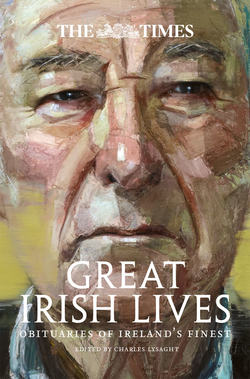Читать книгу The Times Great Irish Lives: Obituaries of Ireland’s Finest - Charles Lysaght - Страница 16
ОглавлениеMRS CECIL ALEXANDER
14 OCTOBER 1895
MRS CECIL FRANCES ALEXANDER, so well known as “C.F.A.,” died at the Palace, Londonderry, at 6 o’clock on Saturday evening after a few weeks’ illness. She was born in county Wicklow in 1818, and was the daughter of Major John Humphreys, who served with distinction at the battle of Copenhagen and was afterwards a landed proprietor and extensive land agent in Ireland. In 1847 she married the Rev. William Alexander, who became Bishop of Derry and Raphoe in 1867. In all religious and charitable works in Londonderry and the diocese she took a wise and energetic part. She possessed a simple and straightforward dignity of manner, which gave a peculiar distinction to her in social relations. Among the poor and aged she was loved with pathetic intensity. It is, however, upon her writings that Mrs Alexander’s extended fame is built. She had a natural bent for poetry, and her early intimacy with Keble and Hook stamped her mind with a lasting impression. Her “Hymns for Little Children” and “Moral Songs” have had an immense circulation. Her less widely known “Poems on Old Testament Subjects” reach a loftier practical standard, but it is by certain of her hymns especially that she will be remembered, not only within the Anglican Church, but by all Christian communities. Of several of these Gounod said that they seemed to set themselves to music. Six only need be indicated- “The roseate hues of early dawn,” “When wounded sore the stricken soul,” “His are the thousand sparkling rills,” “Jesus calls us o’er the tumult,” “All things bright and beautiful,” and “There is a green hill far away.” The “Burial of Moses” is her best known poem. Of this Tennyson observed that it was one of the poems by a living writer of which he would have been proud to be the author. The Rev. F. A. Wallis, of the Universities’ Mission to Central Africa, preaching in Londonderry Cathedral yesterday, mentioned that he had heard Mrs Alexander’s hymns sung by half-clad Africans in a language she had never known.
